
Because it's so commonplace and often taken for granted, it is easy to sometimes forget that halite is a mineral. With its perfectly formed, sharp-edged cubic crystals, it's a collectible one at that. Halite's solubility, hygroscopicity, and distinctive taste set it apart from all other minerals and account for its great economic importance and prominent role in history.
IONIC BONDING
Halite's unique properties are because of ionic bonding, the attraction between ions of metallic elements (sodium) and nonmetallic elements (chlorine).
Atoms are considered stable when their outer shells contain eight electrons. Atoms with fewer than eight outer electrons achieve stability by gaining, losing, or sharing electrons. Both sodium and chlorine atoms have three shells. Sodium, with one outer-shell electron, achieves stability by losing its electron to create the positively charged sodium cation Nal+. Chlorine, with seven electrons in its outer shell, achieves stability by acquiring an electron from another atom to create the negatively charged chlorine anion Cl¹.
When chlorine atoms contact sodium atoms, chlorine aggressively grabs sodium's single outer electron, transforming both atoms into oppositely charged ions. This opposite-charge attraction is the ionic bond that holds sodium and chlorine ions together in the stable halite molecule.
STRUCTURE AND SOLUBILITY
Halite's crystal lattice consists of alternating rows of sodium and chlorine ions arranged in three axial directions at right angles in a cubic structure. Because ionic bonding is relatively weak, moderate mechanical pressure easily separates the rows to account for halite's perfect, three-directional cleavage and its softness of Mohs 2.0.
Bu hikaye Rock&Gem Magazine dergisinin October 2022 sayısından alınmıştır.
Start your 7-day Magzter GOLD free trial to access thousands of curated premium stories, and 9,000+ magazines and newspapers.
Already a subscriber ? Giriş Yap
Bu hikaye Rock&Gem Magazine dergisinin October 2022 sayısından alınmıştır.
Start your 7-day Magzter GOLD free trial to access thousands of curated premium stories, and 9,000+ magazines and newspapers.
Already a subscriber? Giriş Yap

THE BRIGHT SIDE OF VOLCANIC ROCK
As a mineral resource, volcanic rock is decidedly short on glamour.
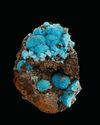
The Other Copper Minerals
12 Lesser-known Collectible Species

MINERAL COLLECTING -AND ROCK & GEM
Evolving Together FOR 54 YEARS
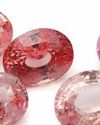
Gemstone Trends
A Look Back at 2024 & What to Expect in 2025
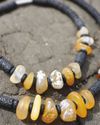
How to Make a GEM BEAD NECKLACE
No Lapidary Experience Needed!
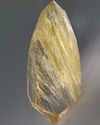
Framing Nature's Art
Faceting Rutilated Quartz for Beginners
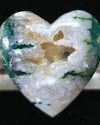
BEDAZZLED BLUE SEAM AGATE
More than several centuries ago, mining was the profession most often seen as befitting of men.

ROCK & GEM FIELD GUIDE:
Spinel is a captivating gemstone with a rich history of being mistaken for gems like ruby and sapphire.
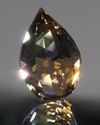
SNAKE SCALE DROP 1.5:1
This Faceting Focus is revisiting the briolette gemstone design because of its popularity with independent and hobby gemstone faceters.

STONE CHIC
How Earth-Inspired Decor Brings Comfort to our Home